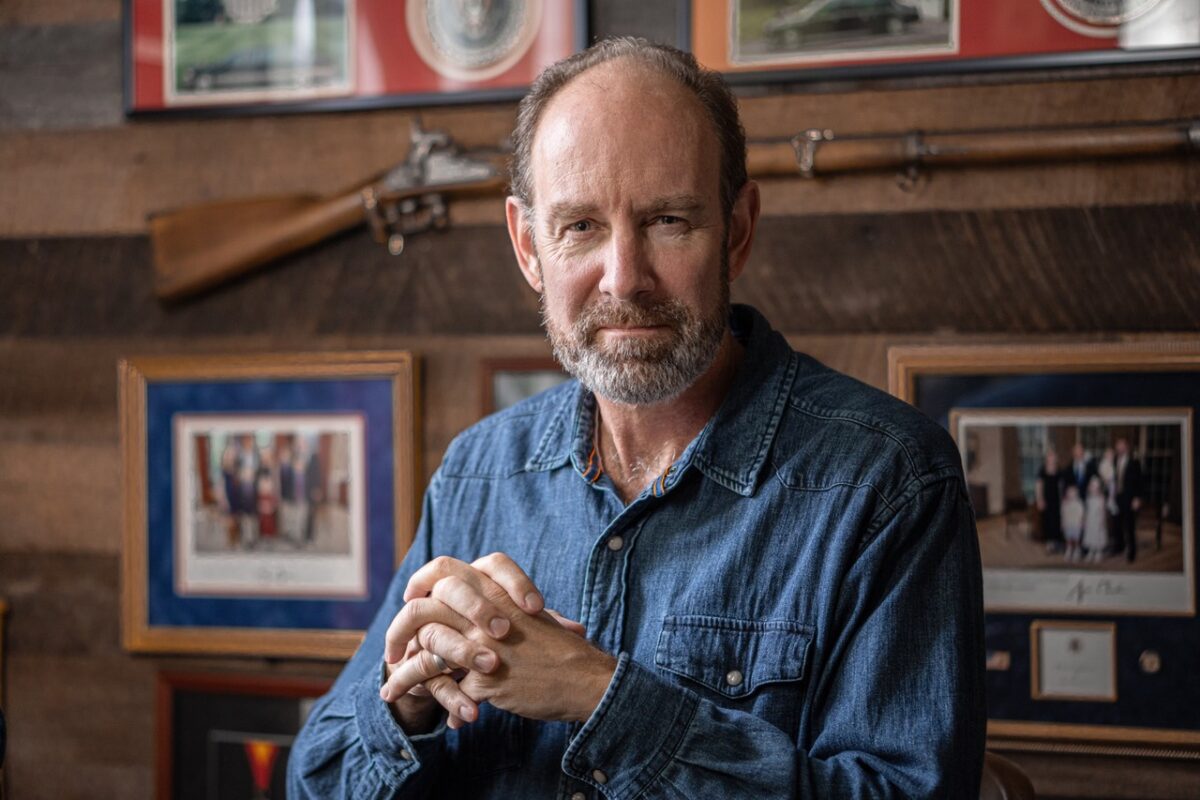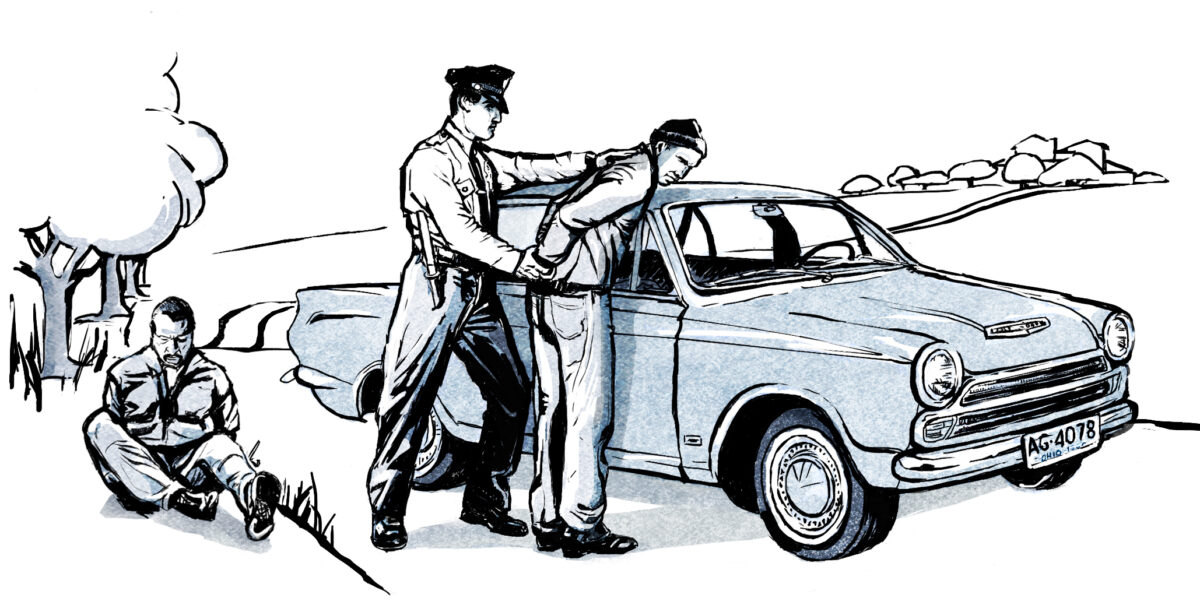“Every time you take the president out of the White House, you introduce risk,” said Kenneth Valentine, retired Secret Service agent. But for Mr. Valentine, assigned to the personal protection detail for three U.S. presidents, his faith allowed him to do his job with confidence, “because I believed that I would be empowered to do my very best,” he said in an interview. Every time his team brought the president back safely to the White House, they joked that they had “cheated death,” but in his mind, cheating death also means living life to its fullest.
While Mr. Valentine loved his career and never had any doubts that he was exactly where he was supposed to be, it was a high-risk, high-stress job that took a toll on his family life. To make things work, there needs to be a lot of humility, sacrifice, and collaboration. This philosophy is also what helped him persist. Three times, he told his wife that if she wanted him to quit so he could be home more, he would. Each time, she said no.
Mr. Valentine knew since his junior year in college that he wanted to join the Secret Service. Both his father and uncle were FBI agents, and that year, in 1988, President Ronald Reagan visited Purdue University, where Mr. Valentine was studying. His father was there to provide intelligence, and Mr. Valentine got “backstage” access to witness up-close what the job entailed. “At the last minute, I ended up going to the airport to watch Air Force One arrive and then the motorcade depart,” he recounted. “That had a big impact on me.”
Encouraged by his uncle to complete a law degree first, Mr. Valentine did just that, got married, and then applied to the Secret Service. “I was in Jackson, Mississippi, and I remember very well taking in my application. The head of the Secret Service in Mississippi called me into his office and sat me down,” Mr. Valentine recalled. “I was very prepared to answer his questions and tell him why I wanted to do it.” When he got the news that he was in, he was so excited he couldn’t sleep for 48 hours.
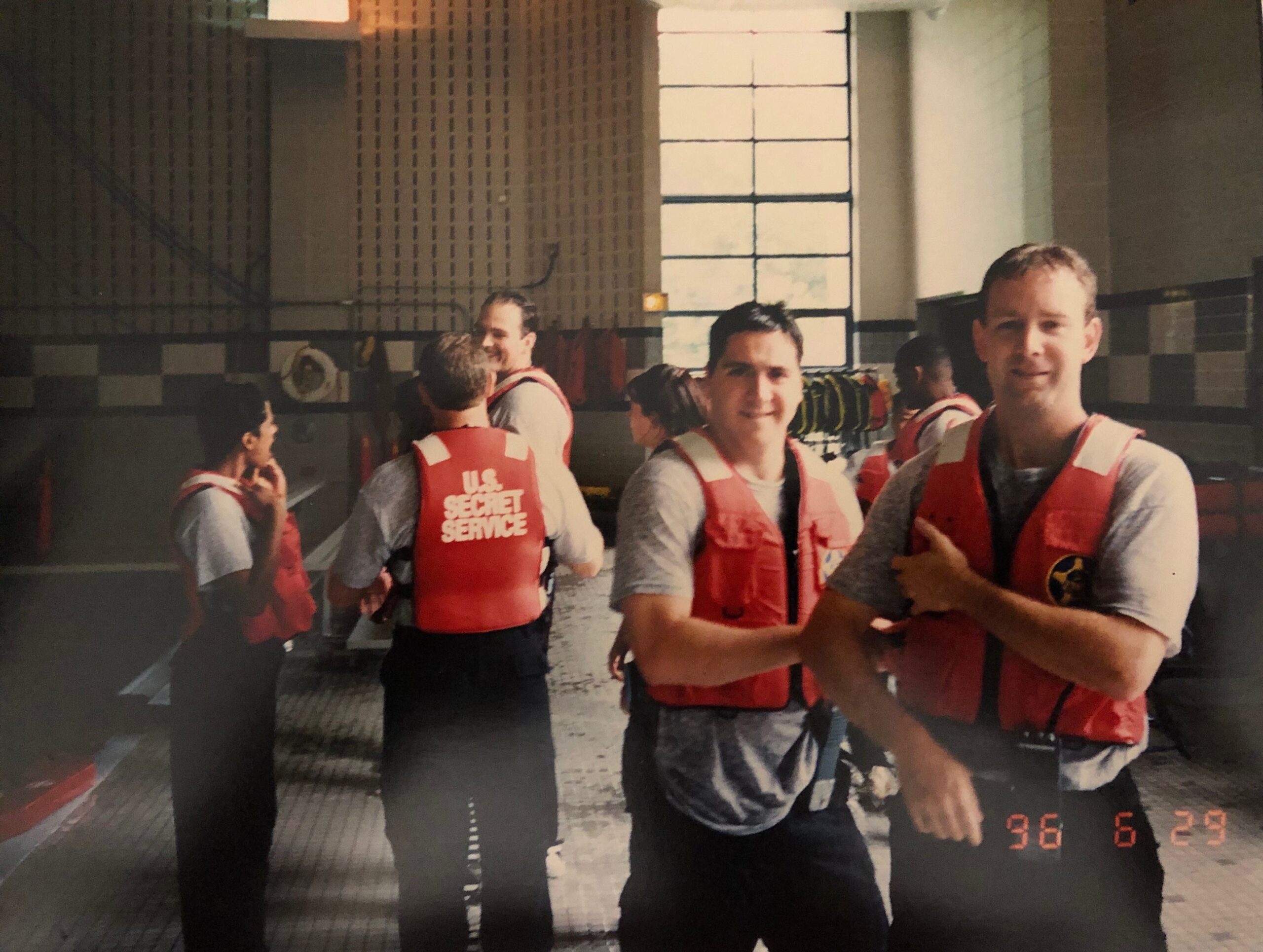
What Gets Him Through the Hard Times
One thing Mr. Valentine appreciates greatly about the Secret Service is that staff members take the time to go into the homes of new recruits and meet with the people who are going to be impacted by the job. They want to be fully transparent about the challenges of the road ahead. Mr. Valentine and his wife didn’t have children when he first got the job; over time, their family and their faith grew together.
The family was always aware that when he left for the day, he would first put on a bulletproof vest, he had a gun, and he’d been trained. “Bad things happen,” he said, “But there was no pressure to be a hero and make an unnecessary sacrifice. The efforts we undertook not only protected the president, but also ourselves.” Nevertheless, he always knew that what he was doing might cost him his life, and so he started writing letters to his kids: “I would write a letter on the stationery of the hotel and send it through the front desk so that it would get to the family in case something happened.” Over time, as letters and journal entries multiplied, he realized he had the beginnings of a book. That book, released in April 2024, is the accumulation of the lessons he learned and is titled “Cheating Death.”
He and his wife have five children. He was present at each of the births, but he could never stay with the family for long. “Each baby was born on a weekday, and I would take the rest of that week off,” he said. “But then I’d be back at it [the following week].” Once, after being away in Colombia for several weeks, he returned home for a brief 14 hours before leaving again for Halifax, Nova Scotia. While he was home, his wife informed him that she was going to have another baby: “Well, that’s great! I have to pack a suitcase now.”
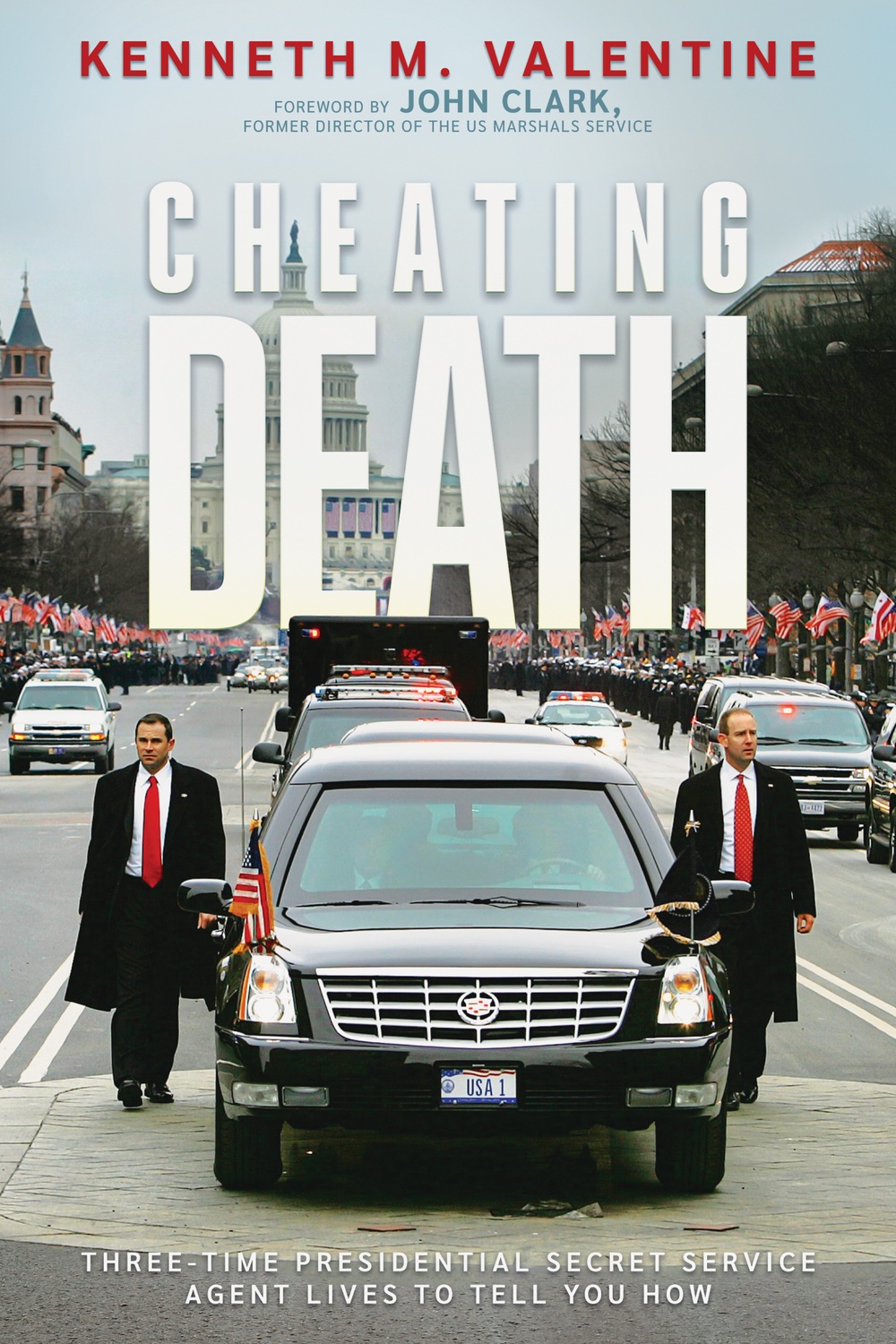
Work was exciting. “It was so much fun that sometimes it was hard to remember that life back home was difficult,” Mr. Valentine said. As the children grew up, he became more and more intentional about carving out quality time with them since there wasn’t a quantity of time. “The boys loved rough-housing,” he said. “We would go in the basement, I would get down on the floor, and the three boys would just attack me.” With his two girls, he would set a time to take each one out and give his undivided, one-on-one attention.
Family came first, but sometimes, Mr. Valentine’s line of work potentially put them in danger. One time, while they were living in Oklahoma, “our agents were involved in a shoot-out that resulted in the death of the guy we were trying to arrest.” Mr. Valentine immediately became concerned about the possibility of retaliation. After making the necessary arrangements to ensure the office and staff were protected, “I then googled ‘Secret Service Oklahoma.’ I was the one doing the TV interviews—I was the special agent in charge. My name, my photo, my home address all popped up.”
Shocked at how easy it was to find himself on the internet, Mr. Valentine briefed his family about the need to be vigilant about “cars we don’t recognize, and if you hear the sound of breaking glass in the night, then here’s what you do.” He trained each of them how to low-crawl to a safe spot: “That’s the reality of being in law enforcement: You’re easy to find, and here’s how best to protect yourself.” He believes the be-prepared mindset has affected all of his children: “My daughter lives on her own in Chicago, and she’s not afraid: ‘I’m Ken Valentine’s daughter; I can take care of myself!’ she says.”
Mr. Valentine’s faith helped him feel prepared without fear. “Faith is being sure of what you do not see,” he said. “My faith is tested every single day. Walking in faith is the exercise of what you believe, and sometimes it’s bumpy.” Nevertheless, he believes faith is a gift. “In work, if you believe that you’re where you’re supposed to be, doing what you’re supposed to do, there’s great freedom … in the Secret Service. I believed that I was empowered to do great things.” While Mr. Valentine always knew the job was risky, his faith gave him strength to do his very best, with confidence and peace.
The Presidential Example
In his work, there were lots of times when Mr. Valentine and his team had to make quick and sometimes creative decisions to enable the president to do what he wanted to do. “All the president heard was, ‘Sure, we can make that happen,’ and what he didn’t see under the water was the churn,” he said. In return, Mr. Valentine got to observe and learn from the presidents he served.
In President George W. Bush, Mr. Valentine observed and admired his great resolve and fearlessness: “Once there was an incident brewing in Peru, and the Peruvians tried to prevent the Secret Service from going with the president on a big on-camera walk. President Bush got a few feet in and realized none of us were with him, and he stopped the procession, walked back, reached over what was almost a fist-fight, and grabbed our guy and pulled him in. If we didn’t love him before, we loved him after that. The protectee turned around and protected us.”
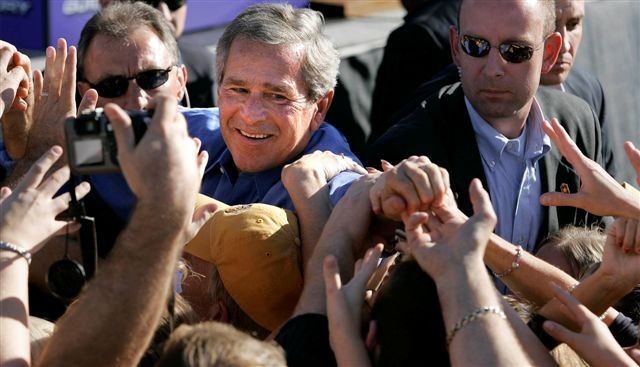
Mr. Valentine admired President Barack Obama for the way he handled stress. “He didn’t sweat the small stuff!” Once, when Obama was still a U.S. senator running for president, Mr. Valentine was on a small jet with him that landed in Iowa. Mr. Valentine was supposed to be the first one off the plane, so he stuck his head out and looked at a dark airport with no agents waiting for them, no car ready. He turned back and said to the pilot, “I think we’re in the wrong town.”
He had to go and tell Obama that they had landed in the wrong place. Obama looked up from his newspaper and said, “Oh. Where are we supposed to be? How long will it take to get there?” When he heard the answers, he simply said OK and continued to read the paper. “Other people might have been quite upset,” Mr. Valentine said, “but not Senator Obama.”
Being prepared, asking for help, and exercising his faith daily has allowed Mr. Valentine to do his job with confidence and return home safely to his family. Mr. Valentine wants to show people that living an abundant life and being confident through faith is surely the best way of cheating death.
From May Issue, Volume IV

